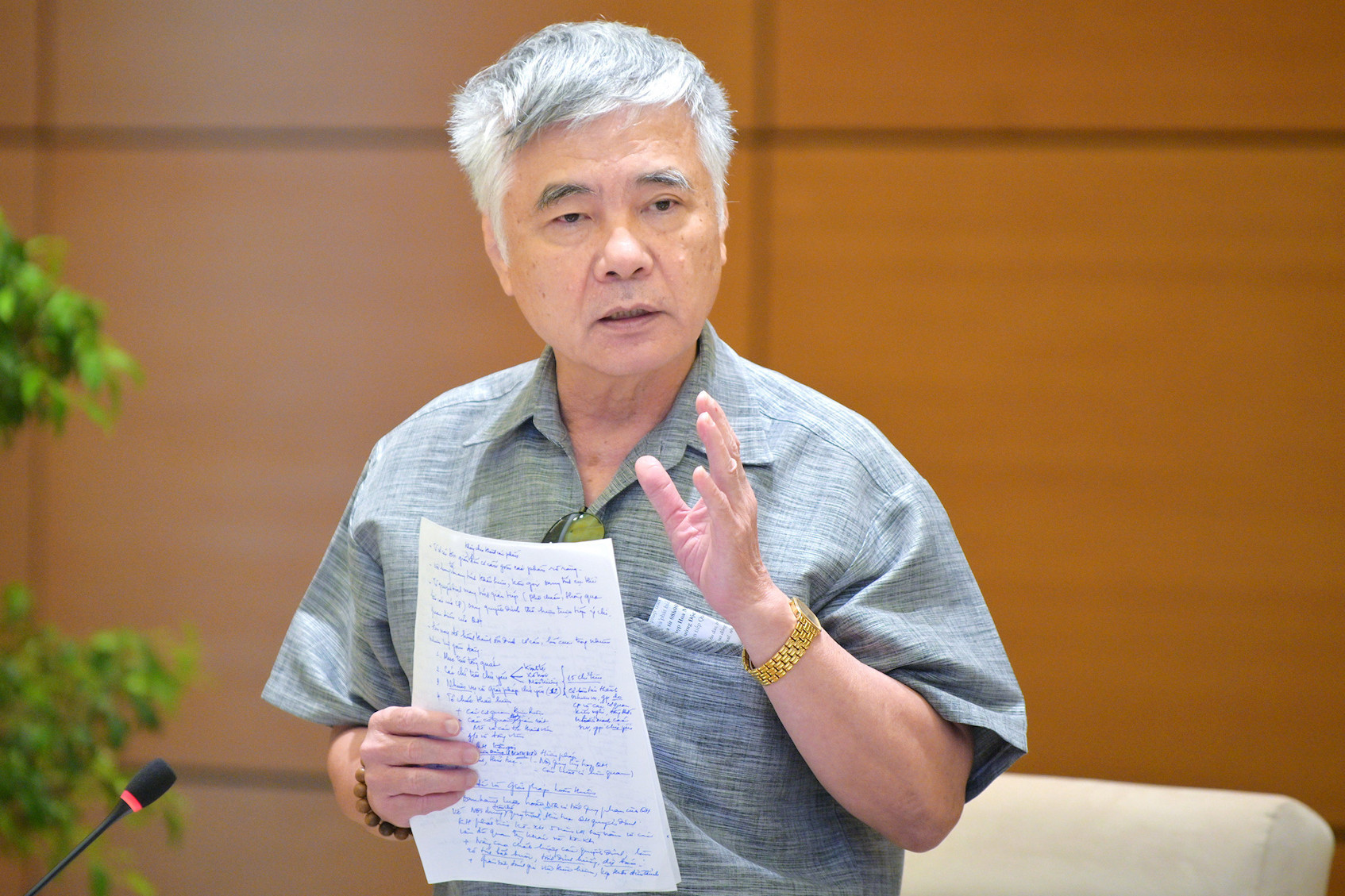
As a member of the 12th National Assembly (2007-2011), you voted for the North-South high-speed railway project. What was your biggest impression about the National Assembly session?
Two questions were put into discussion. First, National Assembly deputies needed to say ‘yes’ or ‘no’ to the entire-route development project. Second, if they did support the entire-route development plan, they could consider allowing the government to develop a railway section on a trial basis, and the results of the pilot program would be reported to the National Assembly for further decisions.
Forty one percent of deputies said ‘no’, while 37 percent said ‘yes’, while the remaining were counted as abstentions. There were delegates who were Central Committee members who agreed with the policy at the Central Committee, but at the National Assembly session, they voted against the project.
As the first option was rejected, the second option was automatically rejected, too. Most National Assembly deputies disagreed on the project development plan because they were concerned about capital. They could not find out where the capital for the project could be sourced from, how the effects of the project would be, which technologies we should choose and how the railway could be developed.
I was among the deputies who said ‘yes’. I thought it would be better if Vietnam built a railway section on a trial basis, the HCM City – Nha Trang section, for example. However, I also noted that it was necessary to consider capital mobilization, because $56 billion was a huge amount of capital.
At that moment, we still could not gain the voters’ popularity, while the inflation situation was tense. But if we had accepted to develop the HCM City – Nha Trang railway section on a trial basis, we would have been able to develop an industry, and master technology and a workforce.
Nowadays, when parties all agree on the development of the north-south high-speed railway project, there are still big concerns about capital mobilization, technology and workforce. What is the biggest concern for you?
I am concerned about human resources. Human resources are the decisive factor, and the super-project requires very high quality workers for all work, from designing, execution, and technology to railway management, operation and maintenance.
If we don’t have highly qualified engineers and workers, who will operate the railway?
Therefore, we need to set to train workers immediately, like we trained workers for nuclear power plants in the past.
Among the resources that need to be mobilized to design, construct, receive technology transfer, manage, operate, and maintain Vietnam's high-speed railways, human resources are obviously the biggest challenge, not financial or material resources. The current capability of Vietnamese workers is not good enough to ensure building, management, and operation at an absolute safety level.
If Vietnam designs a North-South 350km/h passenger railway, it needs to hire high-quality experienced contractors, engineers, managers, drivers and workers from developed countries, such as Japan.
What worries National Assembly deputies and economists the most is the capital arrangement capability, while you put emphasis on human resources. Could you please tell us why?
Capital mobilization is not a very difficult thing, in my eyes. Le Xuan Nghia, a well-known banking expert, and I agree that the possibility of commercial banks buying government bonds is very high. Every year, the project needs $5.6 billion, or just one percent of GDP in the first year. The ratio would be lower in the next years, because our GDP will be higher in the future.
But the Ministry of Finance has estimated that if Vietnam develops the project, the debt obligation would be up to 68-69 percent of the state budget collections by 2037. Meanwhile, the debt payment obligation/state budget expenditure ratio is now below 25 percent. What do you say about this?
When answering people at the government’s electronic information portal, Deputy Minister of Finance affirmed that there won’t be any difficulties in capital mobilization and debt payment. Deputy Minister of Planning and Investment also said the public debts and government’s debts are still below the ceilings.
So, the two ministries have affirmed that there is no need to worry about capital mobilization capability and debts. They have also affirmed that the railway super-project won’t ‘deprive other sectors of their piece of the cake’, including transport, electricity, agriculture and culture sectors.
I think we should trust their calculations. Of course, the reports still need to be reviewed and examined by the State Appraisal Council and many other agencies.
Tu Giang - Lan Anh
... To be continued